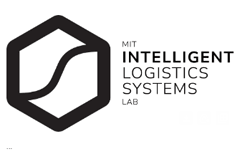The MIT Center for Transportation & Logistics (MIT CTL) announced last week the launch of a new Intelligent Logistics Systems Lab (ILS), a research initiative “designed to revolutionize logistics operations through cutting-edge research at the intersection of operations research (OR), artificial intelligence (AI), and machine learning (ML) technologies,” MIT said in a blog post.
Supply Chain Digest Says... |
|
|
The lab will be under the leadership of Dr. Matthias Winkenbach, Director of Research at the MIT CTL. The lab was funded in part by Mecalux, a provider of automated materials handling systems.
Research themes that will be pursued by the lab are as follows:
Predictive intelligence: The ILS Lab will explore high-impact predictive models powered by AI and ML, including the development of highly accurate, near-term predictive capabilities essential for highly responsive logistics services such as same-day and sub-same-day delivery.
Prescriptive intelligence: The ILS Lab will develop new methods and models that combine OR with ML and AI to solve complex combinatorial optimization problems critical for logistics operations, such as vehicle routing, inventory planning, and network design, in a richer context of non-trivial real-world objectives, constraints, and uncertainties.
Autonomous intelligence: The ILS Lab aims to explore the role, control, and impact of advanced logistics systems and technologies that can independently perform tasks, make decisions, and learn from their environments without continuous human intervention. For instance, this includes mobile robots that assist or replace human warehouse or delivery activities and that operate autonomously in complex and dynamic settings.
(See More Below)
|
CATEGORY SPONSOR: SOFTEON |
|
|
| |
|
|
 Collective intelligence: The ILS Lab will study the collective behavior and coordination of autonomous systems or entities working together to solve a common problem. This stream of work often draws inspiration from natural systems, such as insect colonies or bird flocks, where individual agents follow learned policies, leading to complex and efficient group behavior. In the context of intelligent logistics systems, this involves the synchronization and cooperation of multiple agents such as autonomous robots or crowd-sourced carriers to optimize system performance. Collective intelligence: The ILS Lab will study the collective behavior and coordination of autonomous systems or entities working together to solve a common problem. This stream of work often draws inspiration from natural systems, such as insect colonies or bird flocks, where individual agents follow learned policies, leading to complex and efficient group behavior. In the context of intelligent logistics systems, this involves the synchronization and cooperation of multiple agents such as autonomous robots or crowd-sourced carriers to optimize system performance.
Augmented intelligence: The ILS Lab aims to study how human decision-making can be enhanced by combining human intelligence with AI. Specifically, the lab intends to explore how decision support systems and operations management software can effectively combine human expertise with AI-driven insights.
It would seem to be an ambitious agenda.
Do you have any thoughts on MIT's initiative? Let us know your thoughts at the Feedback button below (email) or in the Feedback section.
|